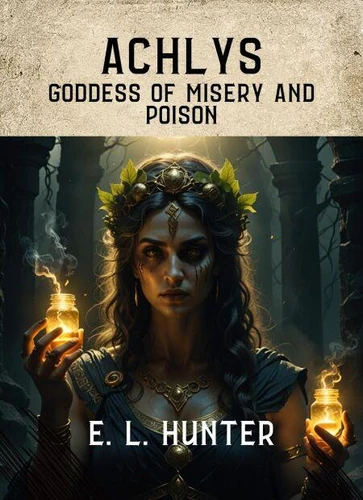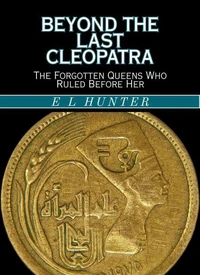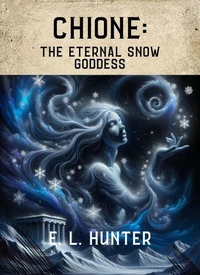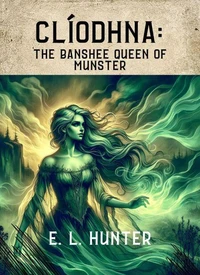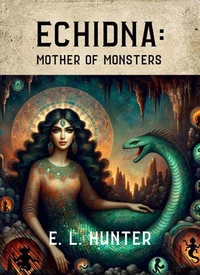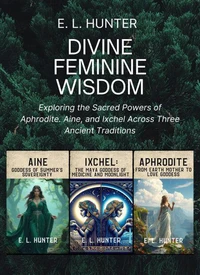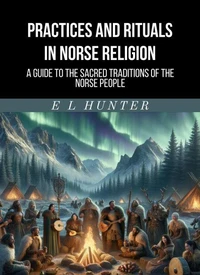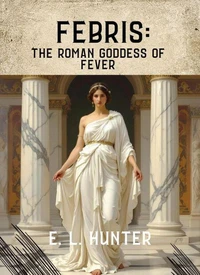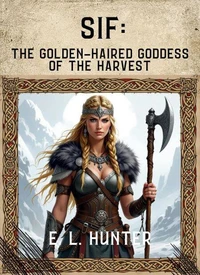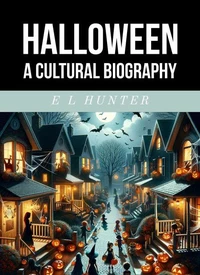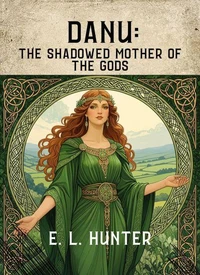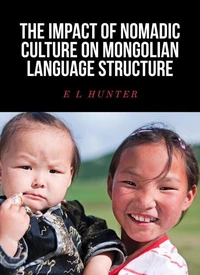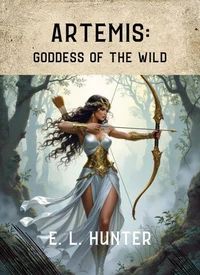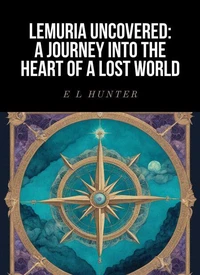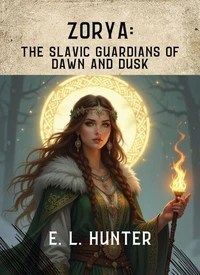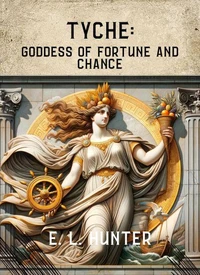A Achlys: Goddess of Misery and Poison
Par :Formats :
Disponible dans votre compte client Decitre ou Furet du Nord dès validation de votre commande. Le format ePub est :
- Compatible avec une lecture sur My Vivlio (smartphone, tablette, ordinateur)
- Compatible avec une lecture sur liseuses Vivlio
- Pour les liseuses autres que Vivlio, vous devez utiliser le logiciel Adobe Digital Edition. Non compatible avec la lecture sur les liseuses Kindle, Remarkable et Sony
 , qui est-ce ?
, qui est-ce ?Notre partenaire de plateforme de lecture numérique où vous retrouverez l'ensemble de vos ebooks gratuitement
Pour en savoir plus sur nos ebooks, consultez notre aide en ligne ici
- FormatePub
- ISBN8231750122
- EAN9798231750122
- Date de parution14/05/2025
- Protection num.pas de protection
- Infos supplémentairesepub
- ÉditeurWalzone Press
Résumé
She stands pale and emaciated, weeping tears of blood, her shoulders covered in dust-Achlys, the forgotten goddess whose very name means "mist." Though barely mentioned in ancient texts, this haunting personification of misery and poison offers profound insights into how humans have always struggled to give form to formless suffering. This accessible yet scholarly exploration resurrects Achlys from obscurity, revealing her striking relevance to our modern relationship with pain, grief, and darkness.
When depression is medicalized, trauma is clinicalized, and positivity is demanded at all costs, this ancient goddess reminds us of the wisdom in acknowledging rather than denying our darkest experiences. Drawing from classical texts, archaeological evidence, and comparative mythology, the book traces Achlys's connections to the poisonous plants that cloud vision, the mist that falls over the eyes of the dying, and the perceptual distortions that accompany profound grief.
These ancient associations find surprising parallels in contemporary psychology, where therapists now recognize that healing often begins not by escaping suffering but by turning toward it with clear-eyed awareness. From Jungian shadow work to existentialist philosophy, from ancient Greek medical theories to modern trauma treatment, Achlys emerges as more than a minor mythological curiosity. She represents a timeless human truth: that confronting what we most fear may ultimately prove less destructive than attempting to deny it.
Whether you're a mythology enthusiast, a student of psychology, or simply someone seeking deeper understanding of suffering's place in human experience, this book offers not comfort but clarity-a clearer vision that emerges, paradoxically, from the very mist that Achlys represents.
When depression is medicalized, trauma is clinicalized, and positivity is demanded at all costs, this ancient goddess reminds us of the wisdom in acknowledging rather than denying our darkest experiences. Drawing from classical texts, archaeological evidence, and comparative mythology, the book traces Achlys's connections to the poisonous plants that cloud vision, the mist that falls over the eyes of the dying, and the perceptual distortions that accompany profound grief.
These ancient associations find surprising parallels in contemporary psychology, where therapists now recognize that healing often begins not by escaping suffering but by turning toward it with clear-eyed awareness. From Jungian shadow work to existentialist philosophy, from ancient Greek medical theories to modern trauma treatment, Achlys emerges as more than a minor mythological curiosity. She represents a timeless human truth: that confronting what we most fear may ultimately prove less destructive than attempting to deny it.
Whether you're a mythology enthusiast, a student of psychology, or simply someone seeking deeper understanding of suffering's place in human experience, this book offers not comfort but clarity-a clearer vision that emerges, paradoxically, from the very mist that Achlys represents.
She stands pale and emaciated, weeping tears of blood, her shoulders covered in dust-Achlys, the forgotten goddess whose very name means "mist." Though barely mentioned in ancient texts, this haunting personification of misery and poison offers profound insights into how humans have always struggled to give form to formless suffering. This accessible yet scholarly exploration resurrects Achlys from obscurity, revealing her striking relevance to our modern relationship with pain, grief, and darkness.
When depression is medicalized, trauma is clinicalized, and positivity is demanded at all costs, this ancient goddess reminds us of the wisdom in acknowledging rather than denying our darkest experiences. Drawing from classical texts, archaeological evidence, and comparative mythology, the book traces Achlys's connections to the poisonous plants that cloud vision, the mist that falls over the eyes of the dying, and the perceptual distortions that accompany profound grief.
These ancient associations find surprising parallels in contemporary psychology, where therapists now recognize that healing often begins not by escaping suffering but by turning toward it with clear-eyed awareness. From Jungian shadow work to existentialist philosophy, from ancient Greek medical theories to modern trauma treatment, Achlys emerges as more than a minor mythological curiosity. She represents a timeless human truth: that confronting what we most fear may ultimately prove less destructive than attempting to deny it.
Whether you're a mythology enthusiast, a student of psychology, or simply someone seeking deeper understanding of suffering's place in human experience, this book offers not comfort but clarity-a clearer vision that emerges, paradoxically, from the very mist that Achlys represents.
When depression is medicalized, trauma is clinicalized, and positivity is demanded at all costs, this ancient goddess reminds us of the wisdom in acknowledging rather than denying our darkest experiences. Drawing from classical texts, archaeological evidence, and comparative mythology, the book traces Achlys's connections to the poisonous plants that cloud vision, the mist that falls over the eyes of the dying, and the perceptual distortions that accompany profound grief.
These ancient associations find surprising parallels in contemporary psychology, where therapists now recognize that healing often begins not by escaping suffering but by turning toward it with clear-eyed awareness. From Jungian shadow work to existentialist philosophy, from ancient Greek medical theories to modern trauma treatment, Achlys emerges as more than a minor mythological curiosity. She represents a timeless human truth: that confronting what we most fear may ultimately prove less destructive than attempting to deny it.
Whether you're a mythology enthusiast, a student of psychology, or simply someone seeking deeper understanding of suffering's place in human experience, this book offers not comfort but clarity-a clearer vision that emerges, paradoxically, from the very mist that Achlys represents.

